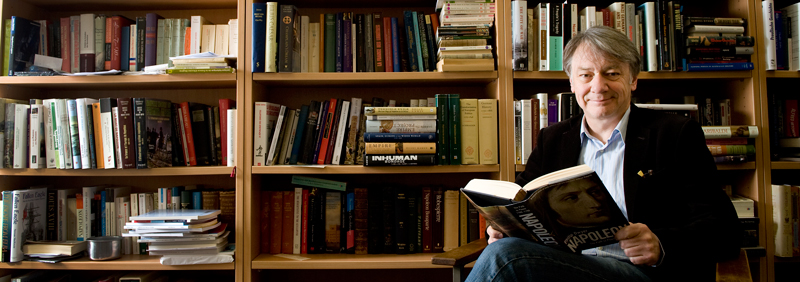Researcher Highlights
Violence writ large
Professor Philip Dwyer
Professor Philip Dwyer and his team from the Centre for the History of Violence are leading a fundamental rethinking of violence in the modern world.
 You only have to turn on the television to become immersed in violence, points out Professor Philip Dwyer.
You only have to turn on the television to become immersed in violence, points out Professor Philip Dwyer.
"It is such a present thing, whether it is the conflict in Libya, the war in Iraq, riots in London or the case of a footballer who has assaulted a female fan, violence is a constant within our world.
"Yet, we don't really understand the processes behind it, we don't understand what it is that makes people commit these acts of violence. This, as a phenomenon, hasn't been the object of detailed and profound research."
Probing the underlying historical factors of violence is an integral aspect of the research of the Centre for the History of Violence, led by Dwyer, within the Faculty of Education and Arts.
Dwyer describes the research agenda of the group, an alliance of historians, sociologists and language experts, as "violence writ large", embracing anything from war and massacre to criminal acts, sexual and domestic assault, intellectual violence or violence in film and literature.
With the momentum created by their interdisciplinary meeting of the minds, Dwyer and his team have developed grander ambitions for making the University of Newcastle a leading international research hub in the field of violence studies.
"Violence has been studied within different disciplines over the past 10 or 15 years but it is really coming into its own as a field and researchers in Newcastle are at the forefront of this," Dwyer says.
"We see an opportunity to pull together researchers from lots of different universities and disciplines and substantiate, in effect, this new field of study.
"You can ask the very simple question, 'What is violence?' and come up with all sorts of different responses depending on what field someone is in," he says.
Dwyer's own interest in violence emerged from research into his award-winning book Napoleon 1769-1799: The Path to Power, which was published in 2008.
"It was quite accidental; as I was writing the first volume of the biography I came across lots of massacres by Napoleon's troops in Italy and Egypt and I had never really seen any detailed research on them, so I delved into it," he says.
"But even before that, I guess, there was this desire as an undergraduate teacher to be able to explain to students what it is that makes a 'normal' individual commit extreme acts of violence.
"It's very intriguing question - it is all about us but we don't really understand it."
- Find out more about the Centre for the Study of Violence
The University of Newcastle acknowledges the traditional custodians of the lands within our footprint areas: Awabakal, Darkinjung, Biripai, Worimi, Wonnarua, and Eora Nations. We also pay respect to the wisdom of our Elders past and present.
